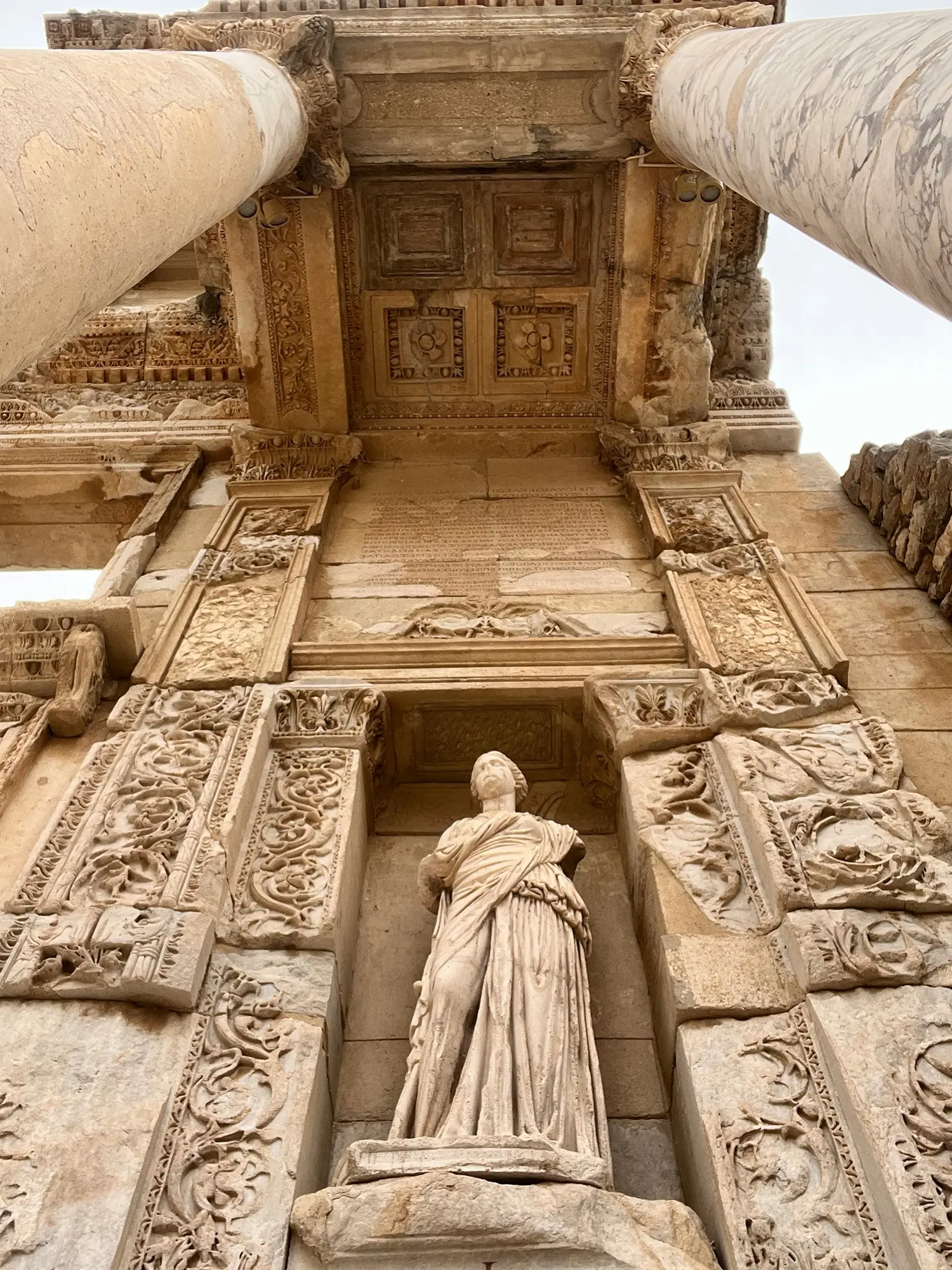The Library of Celsus, located in the ancient city of Ephesus (modern-day Turkey), is one of the finest examples of Roman architecture and an enduring symbol of the importance of knowledge in the ancient world. Built between 114-117 CE by Tiberius Julius Aquila in honor of his father, Tiberius Julius Celsus, the library was not only a repository of 12,000 scrolls but also a monumental tomb for Celsus. Despite the ravages of time and earthquakes, the library remains a powerful reminder of the cultural and intellectual vitality of ancient Ephesus.
Architectural Mastery and Design
The Library of Celsus exemplifies Roman architectural grandeur. Its two-story façade, adorned with Ionic columns and intricate carvings, represents the fusion of Greek and Roman styles. The building, approximately 17 meters (56 feet) wide, 21 meters (69 feet) deep, and 17 meters (56 feet) high, stands as a testament to Roman engineering and aesthetic sophistication.

Notably, the upper niches of the façade feature four statues of women, symbolizing the cardinal virtues: Wisdom, Knowledge, Understanding, and Virtue. These figures not only highlight the intellectual ideals of the time but also underscore the cultural significance of the library in Roman society.
A Cultural and Intellectual Hub
Beyond its architectural splendor, the Library of Celsus served as a major center of learning in the ancient world. Ephesus was a bustling metropolis, attracting scholars, philosophers, and artists, and the library became an important venue for intellectual exchange. It housed one of the most comprehensive collections of ancient texts on subjects like philosophy, history, and science, contributing to Ephesus’ reputation as a leading intellectual hub in the Roman Empire.

The library’s design was also practical, with climate-controlled rooms to preserve its invaluable scrolls. Its role in the preservation and dissemination of knowledge highlights the library’s importance in the cultural and scholarly landscape of the ancient Mediterranean.
Destruction, Restoration, and Legacy
The Library of Celsus suffered significant damage from an earthquake in 262 CE, leaving the structure in ruins and its collection lost. Despite this, the library’s façade and symbolic significance remained intact in the city’s memory.

In the 1970s, restoration efforts began to rebuild the façade, and today the structure stands partially reconstructed. Visitors can now explore its grand columns, relief sculptures, and reconstructed statues, gaining insight into the library’s historical and architectural significance.